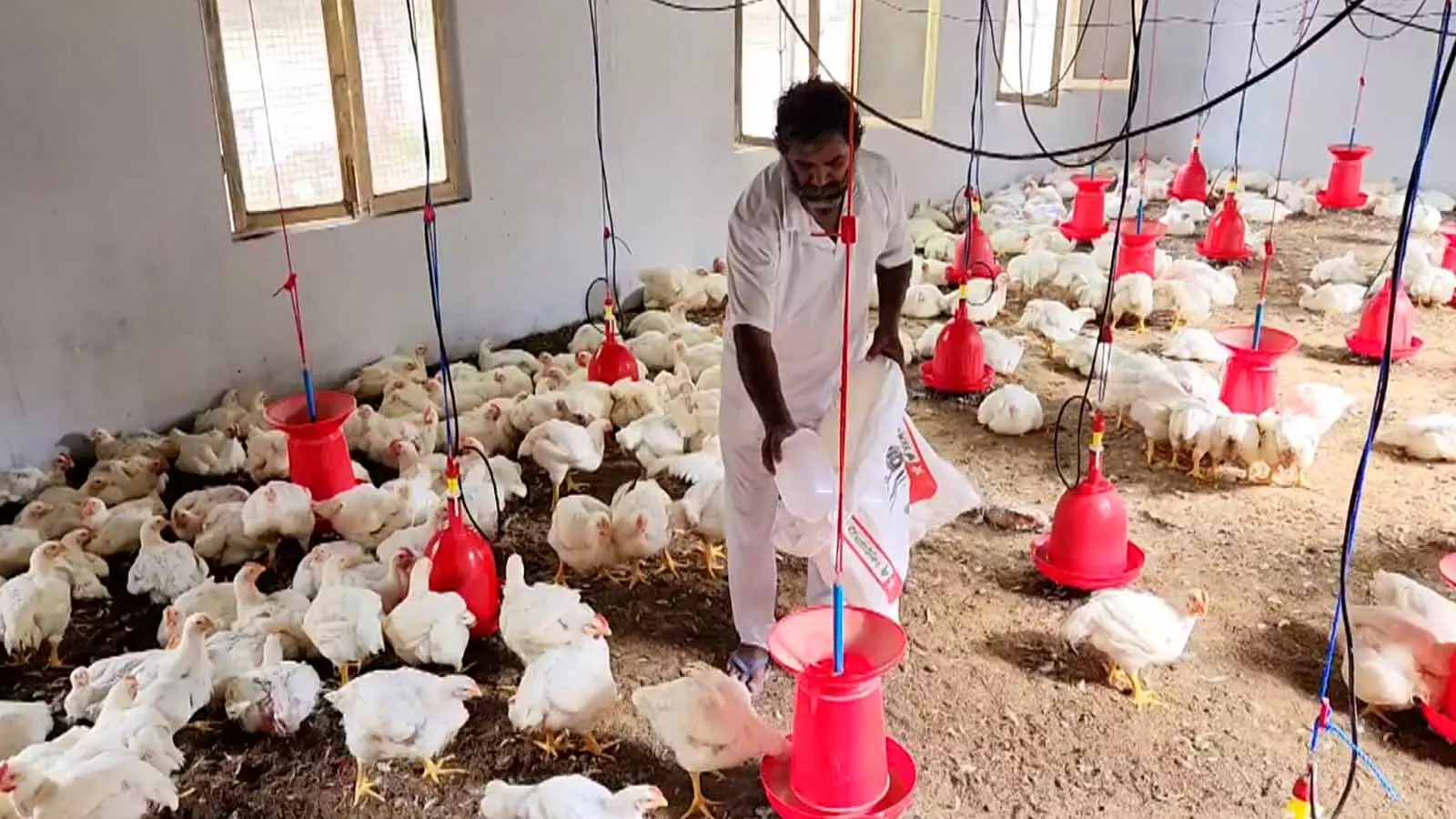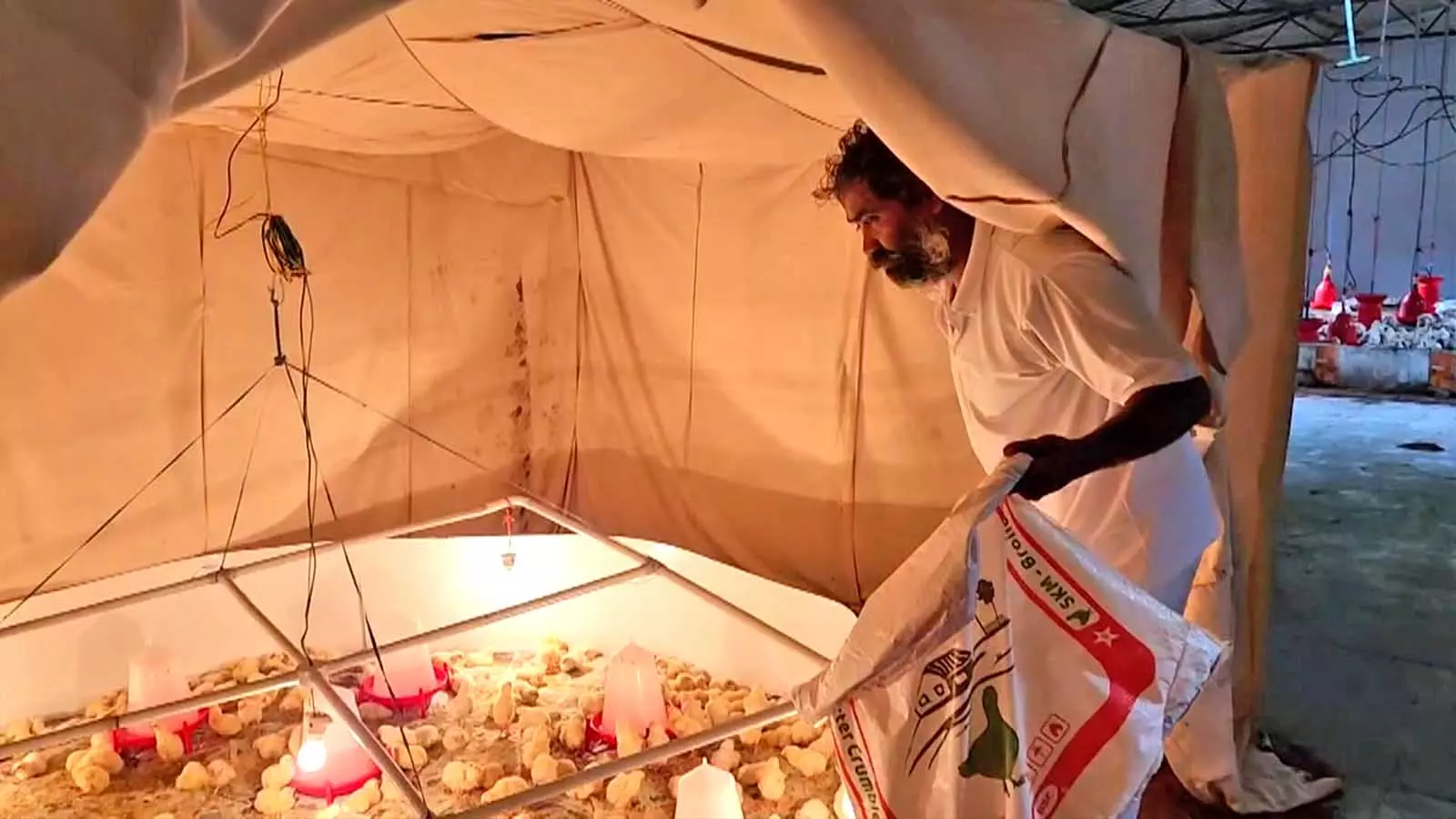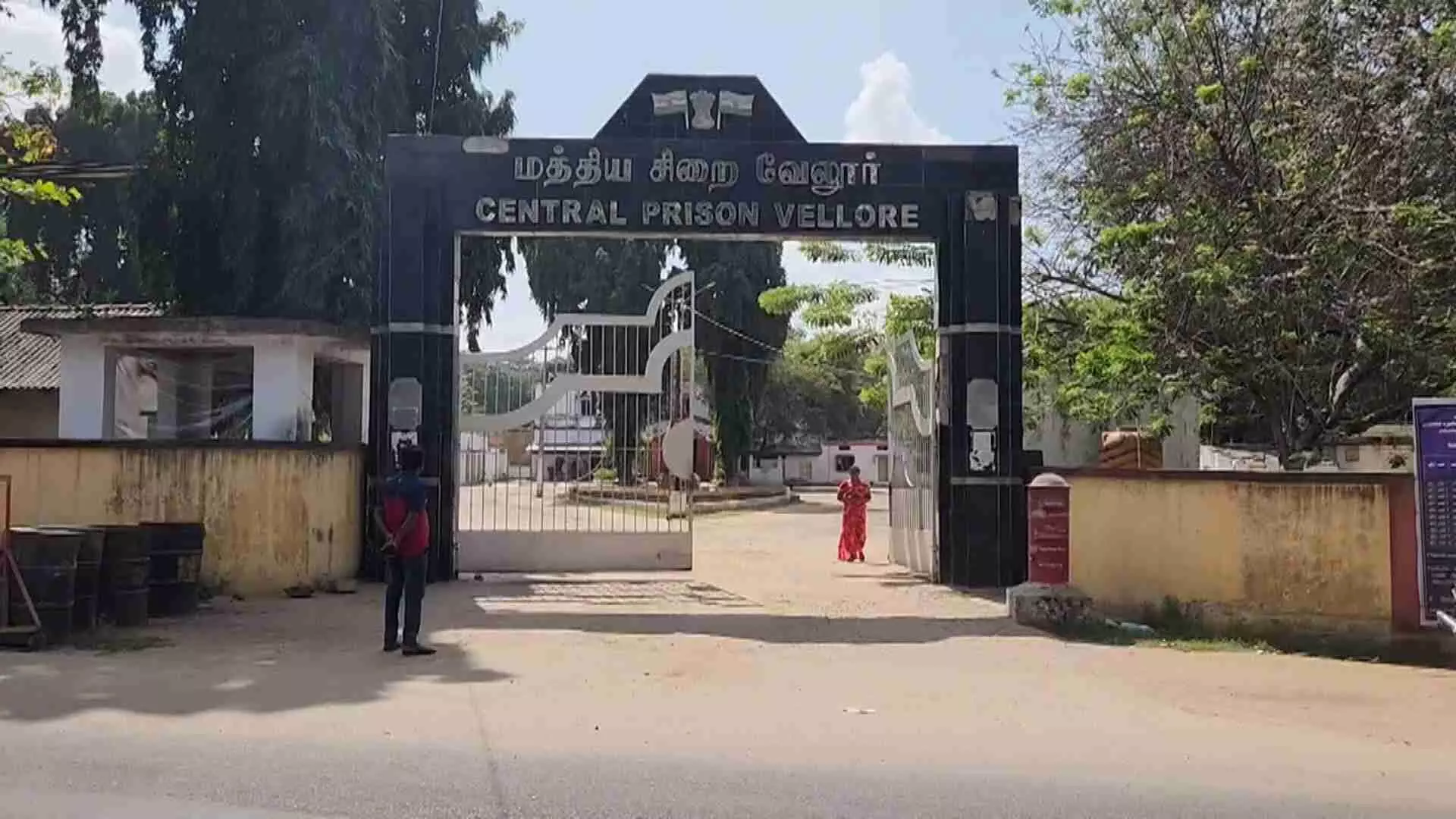
- Home
- India
- World
- Premium
- THE FEDERAL SPECIAL
- Analysis
- States
- Perspective
- Videos
- Sports
- Education
- Entertainment
- Elections
- Features
- Health
- Business
- Series
- In memoriam: Sheikh Mujibur Rahman
- Bishnoi's Men
- NEET TANGLE
- Economy Series
- Earth Day
- Kashmir’s Frozen Turbulence
- India@75
- The legend of Ramjanmabhoomi
- Liberalisation@30
- How to tame a dragon
- Celebrating biodiversity
- Farm Matters
- 50 days of solitude
- Bringing Migrants Home
- Budget 2020
- Jharkhand Votes
- The Federal Investigates
- The Federal Impact
- Vanishing Sand
- Gandhi @ 150
- Andhra Today
- Field report
- Operation Gulmarg
- Pandemic @1 Mn in India
- The Federal Year-End
- The Zero Year
- Science
- Brand studio
- Newsletter
- Elections 2024
- Events
Why Tamil Nadu prison inmates include chickens

Apart from prisoners, many free-range chickens are now ‘imprisoned’ in central jails across Tamil Nadu. In an effort to cut down costs on the purchase of meat from the open market, the Tamil Nadu Prisons Department has established poultry farms in nine central prisons across the state. These farms provide home-grown, organic chicken for inmates at a much lower cost compared to...
Apart from prisoners, many free-range chickens are now ‘imprisoned’ in central jails across Tamil Nadu. In an effort to cut down costs on the purchase of meat from the open market, the Tamil Nadu Prisons Department has established poultry farms in nine central prisons across the state. These farms provide home-grown, organic chicken for inmates at a much lower cost compared to suppliers outside.
As the production has successfully reached its target, a couple of prisons have found themselves with an excess supply of chicken.
Also read | Why a community has undertaken a decade-long walk across Tamil Nadu
This led jail authorities to make a strategic decision—to sell the surplus meat to the public through jail stores set up outside the prisons. The initiative has not only made the prisons more self-sufficient but also contributed to generating revenue for the department.
Nutrition within budget
Officials in the Prisons Department highlighted that the in-house poultry farms have helped empower prisoners by providing them with the opportunity to develop skills in poultry farming. In addition, inmates who work in these farms receive a monthly salary, which helps them support themselves and their families while they are incarcerated.

The excess chicken meat is sold to people outside prisons at reasonable prices.
“The poultry farm plays a key role in reducing the costs associated with the scheme of providing chicken meat to prisoners twice a week. For all these years, the Prisons Department had to procure chicken from external suppliers. With the in-house poultry farms, we are not only reducing expenses but also creating a sustainable food production system within the prisons,” said Maheshwar Dayal, Deputy Inspector General (DIG) of the Tamil Nadu Prisons Department, while emphasizing the financial benefits of the initiative.
Also read | TN paddy farmers unlearn traditional practices as climate change takes a toll
Currently, close to 20,000 inmates are accommodated in various prisons across Tamil Nadu. According to the Tamil Nadu Prison Manual, inmates are entitled to receive 150 grams of chicken curry along with rice on Wednesdays and Sundays. This provision applies to convicts, undertrials, remand prisoners, and prison department staff, all of whom are served meals prepared in the prison kitchens.
With the in-house poultry farms now in operation, the department aims to save close to ₹10 crore annually, while simultaneously creating a self-sustaining system for food production within the prison walls in the nine central prisons.
Puzhal Central Prison, located in Chennai, is one of the largest prisons in Tamil Nadu. It houses nearly 3,000 prisoners, and its kitchen requires 1,350 kilograms of chicken per week to meet the dietary needs of the inmates. The total cost of setting up the poultry farm at Puzhal Prison was ₹18 lakh. However, in the long run, this initiative will reduce the prison’s annual expenditure by ₹1.4 crore.

The initiative is expected to reduce the prison’s annual expenditure by ₹1.4 crore in the long run.
Since the poultry farms are inside the prison premises, officials sought guidance from the Tamil Nadu Veterinary Department to ensure that raising poultry within prisons would not pose any health risks to inmates. Prison authorities have confirmed that a government veterinary doctor is assigned to regularly inspect the poultry, ensuring their health, hygiene, and the overall safety of the meat consumed by inmates.
How poultry farm initiative took shape?
The concept of establishing poultry farms within prisons was first introduced in October 2024 by Krishnaraj, a prison superintendent, and Shanthakumar, a jailer. They were inspired by a few inmates at Palayamkottai Prison who had previous experience working in poultry farms. These inmates stepped forward and trained seven others in managing and maintaining the poultry farm.
A prison department employee in Palayamkottai, who had previously run a poultry farm before joining the department, volunteered to assist with shed installation and chick maintenance. This collaboration helped establish a well-functioning poultry farm in Palayamkottai Prison, serving as a blueprint for similar projects in other central prisons across Tamil Nadu.
Officials also stated that waste collected from the poultry sheds is used in the prison’s biogas unit, ensuring that no by-products go to waste and making the initiative environmentally sustainable.
Quality uncompromised
Speaking to The Federal on the success of the initiative, a senior prison official said, “We already source most of the vegetables used in prison kitchens from our prison farms. Similarly, we now have poultry farms inside the prison. Three weeks ago, we slaughtered the first batch of chickens raised within the in-house poultry farm and used the meat for prisoners' meals. Since the quality was excellent, initiatives were taken to sell the surplus chicken to the public at a reasonable price.”
The poultry farm workers follow strict feeding protocols, providing the chickens with three types of feed—pre-starter, starter, and finisher food, all of which are sourced from a specialized feed manufacturing company. Veterinary doctors also closely monitor the health of each chick to ensure the meat remains of the highest quality before it is supplied to both the prison kitchen and the store outside the prison.
Due to its hygienic processing and affordable pricing, the prison-sourced chicken has quickly gained popularity among the public.
“I learned about this shop run by prisoners and decided to give it a try. I bought chicken last week, and the quality was excellent. The price was also lower than other shops in the open market. I buy chicken here for two reasons: I get good quality at a cheaper price, and I know that my purchase contributes to a good cause—helping rehabilitate prisoners,” K. Murugan, a resident near Palayamkottai Prison, said sharing his experience.
Beyond prisons
As part of this expanding initiative from Palayamkottai prisons, a 100-foot-long, 20-foot-wide poultry farm was recently set up at Vellore Central Prison. Shanmugasundaram, DIG of Vellore Prison, explained the operational structure of the farm.
“Our poultry farm operates in a rotational system with three sections, each housing 400 chickens. This farm was started not only for the welfare of the prison but also to improve the livelihood of inmates. Based on good conduct, three inmates have been employed to manage the farm. They receive proper training from veterinarians, earn a monthly salary, and oversee the entire operation themselves,” he told The Federal.

Beyond just providing chicken meat for prison meals, the farm is also seen as a revenue-generating project. “Inmates feel empowered through this work. The price of chicken sold in the prison shop is determined daily based on market rates. We also ensure that the sheds are sanitized regularly to maintain hygiene and safety,” he added.
Many social workers and NGOs involved in prison welfare believe that vocational training programmes like poultry farming can significantly benefit inmates after their release.
A. Jesuraj, state secretary of the Prison Ministry India NGO, recently visited the poultry farm in Puzhal Prison and spoke with the inmates working there.
“During my visit, I interacted with inmates engaged in poultry farming. They were excited about learning a new skill that could help them rebuild their lives. Some of them will be completing their prison sentences within a year, and this training will enable them to set up their own poultry farms after release,” Jesuraj said.
He also emphasized that having an in-house poultry farm ensures a steady supply of fresh, nutritious meals for inmates, improving their overall well-being.
“With significant cost savings, vocational training for inmates, and a sustainable food production system, the Tamil Nadu Prisons Department's poultry farming initiative has set a progressive example for other prisons across India. This initiative demonstrates that rehabilitation can go hand in hand with self-sufficiency, offering prisoners a chance to reintegrate into society with newfound skills and confidence,” he added.
